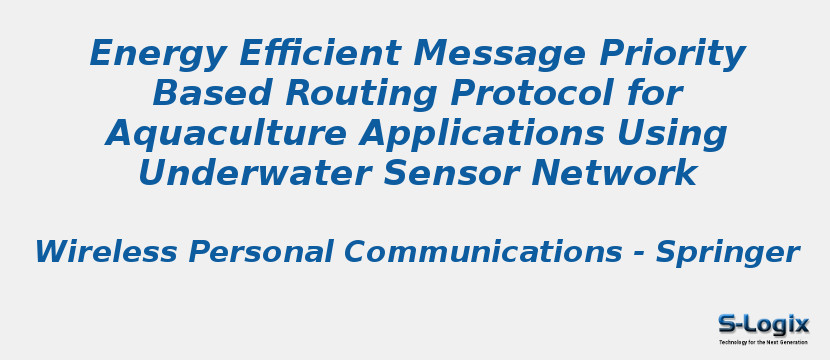Research Area: Wireless Sensor Networks
Aquaculture yield is determined by water characteristics of the farming area. The yield can be maximized by monitoring water parameters on a timely basis and reduces the management cost. Design of application based routing protocols are very important to gather domain specific sensory data for analysis and to achieve better performance in terms of routing techniques for packet delivery and energy consumption. Considering these issues, we propose a priority based routing (PBR) protocol for an underwater sensor architecture to monitor required water parameters used for aquaculture application. The underwater sensor nodes are deployed at various depths and moves with respect to water current forming restricted floating mobility model. The node mobility has significant influence on network performance and PBR protocol considers restricted floating mobility model. In the proposed protocol the sensor nodes reads the water parameters and the sensory data packets were prioritized by differentiating as emergency and regular. The high priority packets were transmitted using minimum delay path. To achieve efficient data packets forwarding to sink node with minimized energy consumption, routing parameters such as one hop delay, residual energy, buffer space, and node packet loss is considered to choose efficient neighbor nodes. The PBR protocol is simulated using DESERT underwater simulator to evaluate the network performance. The proposed PBR protocol outperforms in terms of packet delivery ratio, average energy consumption and network lifetime for aquaculture application using underwater sensor network, compared with existing routing protocols.
Keywords:
Author(s) Name: Shreema Shetty, Radhika M. Pai and Manohara M. M. Pai
Journal name: Wireless Personal Communications
Conferrence name:
Publisher name: Springer
DOI: 10.1007/s11277-018-5886-z
Volume Information: volume 103, pages 1871–1894 (2018)
